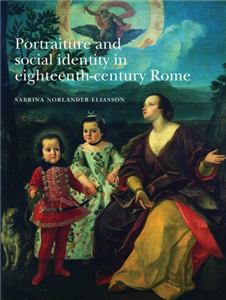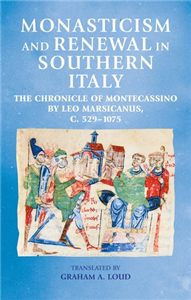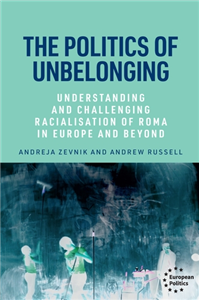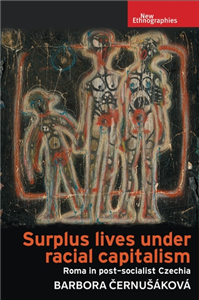Your Search Results
-
Promoted Content
-
Promoted Content
-
 Trusted Partner
Trusted Partner
-
 Trusted Partner
January 1990
Trusted Partner
January 1990Die Herausforderung des Wachstums
Globale Industrialisierung: Hoffnung oder Gefahr? Zur Lage der Menschheit am Ende des Jahrtausends. Berichte internationaler Experten an den Club of Rome
by Club of Rome
-
 Trusted Partner
Trusted Partner
-
 Trusted Partner
Trusted Partner
-
 Trusted Partner
Trusted Partner
-
 Trusted Partner
Trusted Partner
-
 Trusted Partner
Teaching, Language & ReferenceFebruary 2020
Trusted Partner
Teaching, Language & ReferenceFebruary 2020A writer's guide to Ancient Rome
by Carey Fleiner, Jerome de Groot
-
 Trusted Partner
The ArtsNovember 2009
Trusted Partner
The ArtsNovember 2009Portraiture and social identity in eighteenth-century Rome
by Sabrina Eliasson
Portraiture and Social Identity in Eighteenth-Century Rome sheds new light on the relationship between portraiture, social affirmation and the myth of Antiquity as it was experienced and elaborated in eighteenth-century Rome. Drawing upon a wealth of unpublished documents and previously unexamined literary texts, it offers new insights and readings into how the experience of the City in terms of abstract or concrete appropriation affected the ways of portraying native or visiting elite sitters. The Grand Tour portrait, usually discussed as a purely British phenomenon, is here put in its original context of production and compared to the portraits of the Romans themselves. Portraiture and social identity in eighteenth-century Rome will become essential reading for anyone with a particular interest in eighteenth-century art and its social use. ;
-
 Trusted Partner
2024
Trusted Partner
2024My Italy with Berlusconi
And what has become of it. Essays, conversations, reports
by Michaela Namuth
The political era of media entrepreneur and multi-billionaire Silvio Berlusconi began in 1994. German journalist Michaela Namuth also arrived in Rome at that time. He became prime minister, she became a freelance correspondent for various newspapers. She spent the long period of his government with him. During this time, the populist Berlusconi not only paved the way for a far-right government, he was also an ice-breaker for other right-wing populists in Europe and elsewhere. What else happened during and after Berlusconi's time in power is told in 20 chapters of articles, reports and interviews. The result is a colourful mosaic of contemporary Italy. It is about publishing, design, crime fiction, the mafia, a women's factory, the south and Nutella. Under Berlusconi, the country has changed. Many speak of “Berlusconisation”, by which they mean the gradual weakening of democracy. It is a critical book, but also a declaration of love to a contradictory country whose name still has a special ring to many ears.
-
 Trusted Partner
International lawSeptember 2009
Trusted Partner
International lawSeptember 2009War crimes and crimes against humanity in the Rome Statute of the International Criminal Court
by Christine Byron
This book provides a critical analysis of the definitions of war crimes and crimes against humanity as construed in the Rome Statute of the International Criminal Court. Each crime is discussed from its origins in treaty or customary international law, through developments as a result of the jurisprudence of modern ad hoc or internationalised tribunals, to modifications introduced by the Rome Statute and the Elements of Crimes. The influence of human rights law upon the definition of crimes is discussed, as is the possible impact of State reservations to the underlying treaties which form the basis for the conduct covered by the offences in the Rome Statute. Examples are also given from recent conflicts to aid a 'real life' discussion of the type of conduct over which the International Criminal Court may take jurisdiction. This will be relevant to postgraduates, academics and professionals with an interest in the International Criminal Court and the normative basis for the crimes over which the Court may take jurisdiction.
-
 Trusted Partner
Humanities & Social SciencesMarch 2017
Trusted Partner
Humanities & Social SciencesMarch 2017Imperial cities
Landscape, display and identity
by Felix Driver, David Gilbert
Imperial cities explores the influence of imperialism in the landscapes of modern European cities including London, Paris, Rome, Vienna, Marseilles, Glasgow and Seville. Examines large-scale architectural schemes and monuments, including the Queen Victoria Memorial in London and the Vittoriano in Rome. Focuses on imperial display throughout the city, from spectacular exhibitions and ceremonies, to more private displays of empire in suburban gardens. Cconsiders the changing cultural and political identities in the imperial city, looking particularly at nationalism, masculinity and anti-imperialism.
-
 Trusted Partner
Humanities & Social SciencesFebruary 2026
Trusted Partner
Humanities & Social SciencesFebruary 2026Monasticism and renewal in southern Italy
The Chronicle of Montecassino by Leo Marsicanus, c. 529–1075
by Graham Loud
The chronicle of Leo Marsicanus recounts the history of the abbey of Montecassino from its foundation by St. Benedict in the sixth-century up to 1075. It presents a detailed and compelling story of tribulation and renewal, with the abbey twice destroyed and abandoned in the early Middle Ages and then rebuilt. It concludes with an informative account of the building and dedication of the new abbey church by Abbot Desiderius in 1066-71. The chronicle is also a key source for the more general history of southern Italy in the early Middle Ages, and of the conquest of the region by the Normans during the eleventh century. In addition, Montecassino was one of the great intellectual centres of western Christendom and a major contributor to the reform movement within the Church during the later eleventh century. Leo's chronicle is a crucial witness to that role.
-
 Trusted Partner
Humanities & Social SciencesNovember 2023
Trusted Partner
Humanities & Social SciencesNovember 2023Rethinking Norman Italy
Studies in honour of Graham A. Loud
by Joanna Drell, Paul Oldfield
This volume on Norman Italy (southern Italy and Sicily, c. 1000-1200) honours and reflects the pioneering scholarship of Graham A. Loud. An international group of scholars reassesses and recasts the paradigm by which Norman Italy has been conventionally understood, addressing varied subjects across four key themes: historiographies, identities and communities, religion and Church, and conquest. The chapters revise and refine our understanding of Norman Italy in the eleventh and twelfth centuries, demonstrating that it was not just a parochial Norman or Mediterranean entity but also an integral player in the medieval mainstream.
-
 Trusted Partner
Humanities & Social SciencesMay 2025
Trusted Partner
Humanities & Social SciencesMay 2025The politics of Unbelonging
Understanding and challenging racialisation of Roma in Europe and beyond
by Andreja Zevnik, Andrew Russell
This book offers a comprehensive study of racialisation of Romani communities in Europe (and beyond). Drawing on the idea of unbelonging it demonstrates how Romani communities are placed in a position of visceral visibility by local, national and international institutions as well as public media discourses. It shows how such positionality impacts the ability of Roma to self-represent politically and build capacity for change. From the position of unbelonging the book offers an account of Romani agency which both challenges the mainstream representations of Roma but also develops an alternative none-nation-state sense of belonging. In doing so the book outlines an account of Romani alternative expressions in order to take control of their relationship with their own history, future, knowledge, and identity, and the rest of the society.
-
 Trusted Partner
FictionOctober 2020
Trusted Partner
FictionOctober 2020Once upon a time in Italy
by Fulvio, Luca Di
Rome in 1860 - with the exciting age of the Risorgimento as an atmospheric backdropLuca Di Fulvio's new novel is a powerful emotional epic about solidarity, self-discovery, homeland, family, love, and life dreams. The story begins in 1860, with the plot set mainly in Rome during the last phase of the Italian unification movement, the Risorgimento. Luca Di Fulvio creates a highly emotional, mentally cinematic epic with strong, distinctive characters. An orphan boy who wants to use his camera to change the way people see the world. A circus girl with a burning interest in politics. A countess who gives the gift of freedom to others. Three people whom fate brings to Rome in 1870, the pulsating heart of Italy on its path to becoming a nation state. As their paths cross in the midst of this city of promise, their dreams seem to be interwoven with magical bands. But the dazzling city of Rome presents the three with unexpected challenges. One day, when a dramatic event shakes the Eternal City, they are threatened with losing everything they hold dear. A highly emotional epic about three unforgettable characters, and a visually stunning story about new beginnings, the power of love, and a great longing for security in a world where one person stands up for the other. Bursting with life, deeply moving, and full of hope - Luca Di Fulvio's stories are like journeys that you wish would never end Three people and their dream of a better world The new novel by SPIEGEL bestselling author Luca Di Fulvio Set in Rome in 1860 against the atmospheric backdrop of the Italian unification movement
-
 Trusted Partner
May 2007
Trusted Partner
May 2007Paris, Joyce, Paris
by Djuna Barnes, Karin Kersten, Kyra Stromberg
»Ein Liebhaberbändchen zum Mit-sich-Herumschleppen (nicht nur in Paris), zum Fotos-Anschauen (Paris, wie es einmal war, von unnachahmlichem Zauber), zum Sich-Freuen, daß es solche Bücher noch gibt.« BuchJournal
-
 Trusted Partner
Humanities & Social SciencesApril 2026
Trusted Partner
Humanities & Social SciencesApril 2026Surplus lives under racial capitalism
Roma in post-socialist Czechia
by Barbora Cernušáková
Surplus lives under racial capitalism is a critical contribution to the study of racial capitalism. It theorises the link between political economy, anti-Roma racism and modern forms of white supremacy in East Central Europe. The book shows how the introduction of capitalism in the 1990s overlapped with the rise of racialised disposability of Roma workers. Since then, their surplusing recurrently comes into sharp relief during the time of crisis. Surplus lives under racial capitalism is built on an investigation of how race and class structure the Czech labour regime and how they form a single site of struggle. One which binds workers across racialised divisions as surplusing continuously expands.
-
 Trusted Partner
Humanities & Social SciencesJuly 2021
Trusted Partner
Humanities & Social SciencesJuly 2021The fringes of citizenship
Romani minorities in Europe and civic marginalisation
by Julija Sardelic, Gurminder Bhambra
This book presents a socio-legal enquiry into the civic marginalisation of Roma in Europe. Instead of looking only at Roma's position as migrants, an ethnic minority or a socio-economically disadvantage group, it considers them as European citizens, questioning why they are typically used to describe exceptionalities of citizenship in developed liberal democracies rather than as evidence for how problematic the conceptualisation of citizenship is at its core. Developing novel theoretical concepts, such as the fringes of citizenship and the invisible edges of citizenship, the book investigates a variety of topics around citizenship, including migration and free movement, statelessness and school segregation, as well as how marginalised minorities respond to such predicaments. It argues that while Roma are unique as a minority, the treatment that marginalises them is not. This is demonstrated by comparing their position to that of other marginalised minorities around the globe.



























